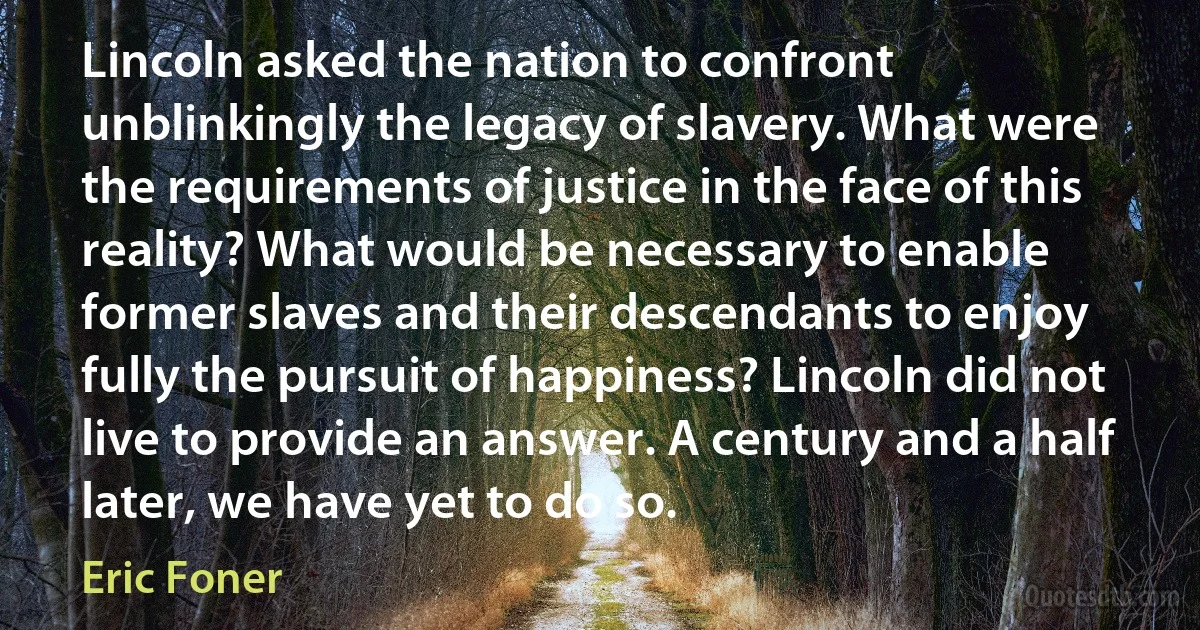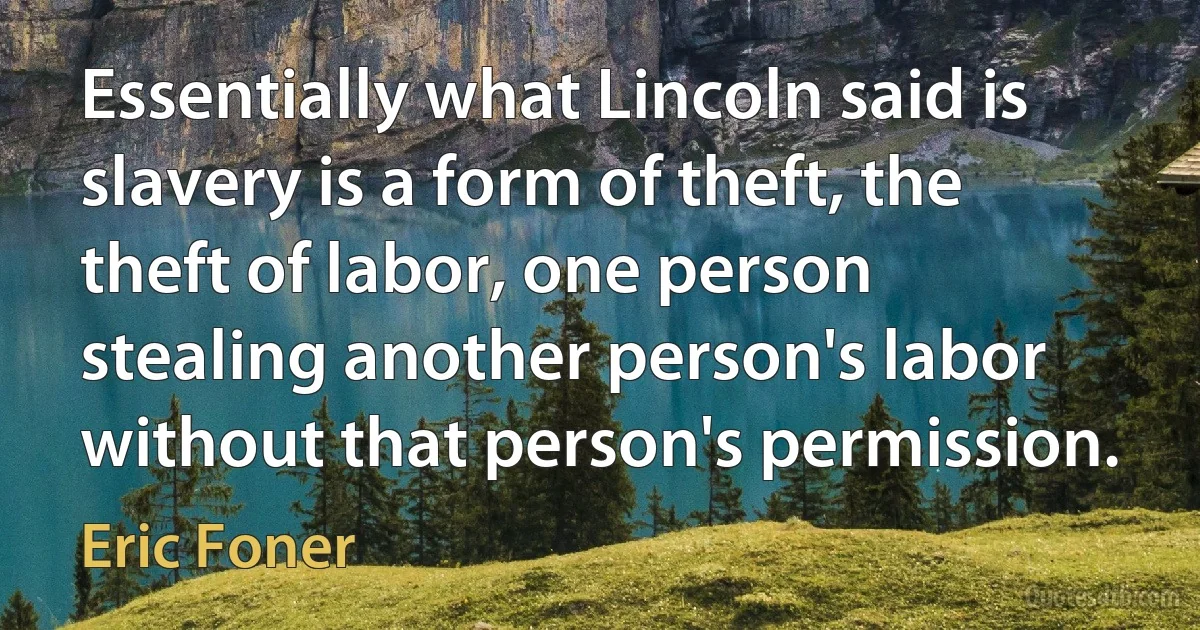Eric Foner quotes
The Democratic Party, whatever that is, lacks a vision or an ideology. But many people have said this. Why? That is because it is a conglomeration of mutually exclusive parts. It contains a large part of the American working class, which has suffered greatly since the Great Recession began. But it also contains a lot of Wall Street people and well-to-do people, and new technologists. What policies is going to unite these people? It's hard to find a unifying theme among them, other than they don't want the Republicans in power. Now, that often gets you fairly far, but it doesn't allow you to govern very effectively.

Eric Foner
In effect, the Klan was a military force serving the interests of the Democratic party, the planter class, and all those who desired the restoration of white supremacy. It aimed to destroy the Republican party's infrastructure, undermine the Reconstruction state, reestablish control of the black labor force, and restore racial subordination in every aspect of Southern life.

Eric Foner
Arthur Schlesinger, Jr. challenged the underlying premise of prevailing Civil War scholarship. The South, he pointed out, had shown no evidence of a willingness to end slavery; indeed, over time it had become ever more hysterical in its defense. With one eye firmly on the recent past, Schlesinger insisted that a society closed in support of evil could not be appeased, and if it was worth a war to destroy Nazism, surely it was worth one to eradicate slavery. But not until the 1960s, under the impact of the civil rights revolution, did historians en masse repudiate a half-century of Civil War scholarship, concluding that the war resulted from an irreconcilable conflict between two fundamentally different societies, one resting on slavery, the other on free labor. Historians pushed Emancipation to the center of their account of the Civil War, and it has remained there ever since.

Eric Foner
The collapse of communism as an ideology and of the Soviet Union as a world power has made possible an unprecedented internationalization of current American values, among them free choice in the consumer marketplace, reduced government economic regulation and an emphasis on individual self-fulfillment rather than the social good, all promoted by an internationalized mass media and consumer culture.

Eric Foner
Andrew Johnson lacked Lincoln's qualities of greatness. While Lincoln had been open-minded, willing to listen to criticism, attuned to the currents of northern public opinion, and able to get along with all elements of his party, Johnson was stubborn, deeply racist, and insensitive to the opinions of others. If anyone was responsible for the wreck of his presidency, it was Johnson himself, first by establishing new governments in the South in which blacks had no voice whatsoever, and then refusing, when these governments sought to reduce freedpeople to a situation akin to slavery through the Black Codes, to heed the rising tide of northern concern. As congressional opposition mounted, Johnson refused to budge.

Eric Foner
[T]he hallmarks of Lincoln's greatness were his ability to grow and his willingness to change his mind. During the war, he had come to embrace the Radical position on immediate emancipation and the enlistment of black soldiers. In 1864 he privately suggested to Governor Hahn that Louisiana allow some blacks to vote under its new constitution, singling out the educated, propertied free blacks of New Orleans and those who had served in the Union army. In April 1865, shortly before his death, Lincoln for the first time publicly stated his support for this kind of limited black suffrage.

Eric Foner
Grant's famous motto, "Let us have peace", adorns the entrance to his tomb in New York City. Brands rightly emphasizes that this was a call not simply for national reconciliation but also for consolidation of what had been won in the war. Union and emancipation. By the time Grant died, the first was secure. It took a long time for the nation to try once again to fulfill the promise of the second.

Eric Foner



